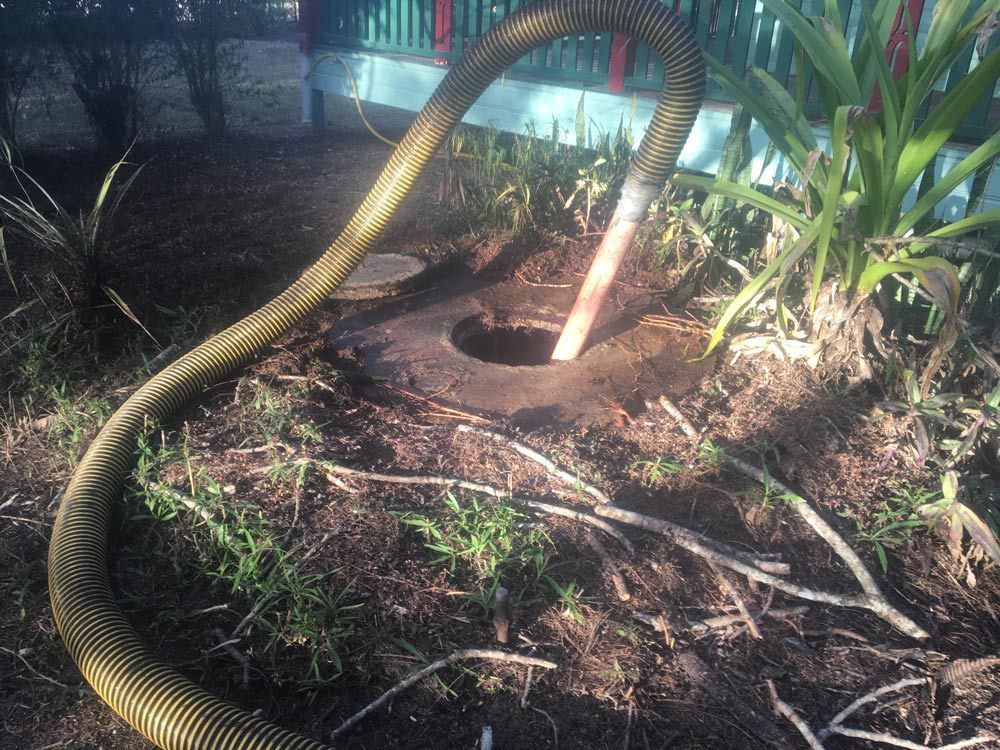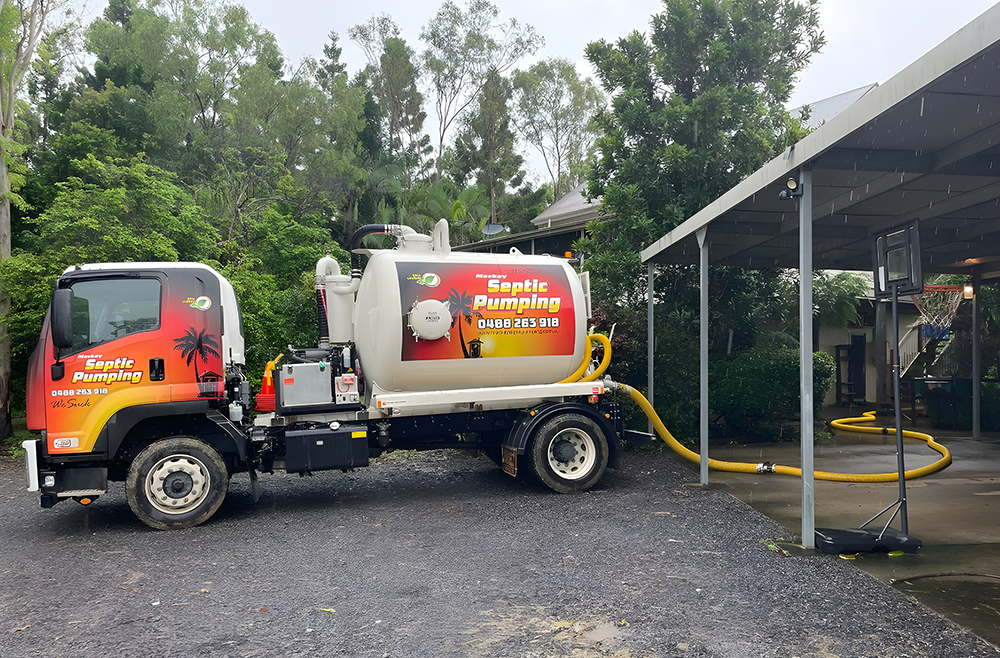How To Prevent Septic Tank Odours In Your Home
Have you ever walked outside and caught a whiff of something unpleasant near your backyard or bathroom? Septic tank odours can be disruptive, embarrassing, and difficult to trace—especially if you're unsure of the cause. For homeowners with a septic system, managing odours isn't just about comfort—it's about keeping the entire system running as it should.
In this blog, we’ll explore simple ways to prevent septic tank odours, covering regular maintenance, smart waste habits, and when to seek help with a professional septic tank pump-out in Mackay.
Why Septic Tank Odours Happen
Before you can prevent odours, it helps to understand where they come from. Septic tanks rely on natural bacteria to break down waste. When the balance is disrupted, or when the system becomes too full, gases such as hydrogen sulphide and methane can escape—leading to foul smells.
These odours can appear indoors (around toilets, sinks, or drains) or outside near the septic tank or drainfield. In many cases, odours signal that something within the system needs attention.
Regular Pump Outs & Their Role in Odour Control
A major reason septic tank odours develop is simply that the tank hasn’t been pumped in a long time. Over time, solid waste builds up and can interfere with the tank’s ability to function properly. As the solids rise, so does the chance of blocked pipes, wastewater backflow, and, of course, persistent smells.
Scheduling a septic tank pump-out in Mackay at the recommended intervals helps keep the system clear. By removing the sludge, you reduce the chance of gases building up and escaping through drains or the tank lid.
For most households, a pump-out is typically needed every 3 to 5 years, but frequency may vary based on household size, usage habits, and tank capacity.
Be Careful with What Goes Down the Drain
Many odour issues can be traced back to items that disrupt the natural bacterial processes in your tank. Everyday household products—especially those that kill bacteria—can interfere with the breakdown of solids and lead to foul-smelling buildup.
Avoid flushing or pouring the following items into your system:
- Antibacterial soaps or bleach-heavy cleaners.
- Oil, grease, or cooking fats.
- Feminine hygiene products, nappies, or wipes (even ‘flushable’ ones).
- Harsh chemical drain cleaners.
- Paint, pesticides, or other hazardous materials.
Instead, choose septic-safe cleaning products and dispose of waste materials in bins where possible. The fewer contaminants in the system, the less likely it is to smell.
Ventilation & Trap Seals in Your Home
Sometimes odours are caused not by the tank itself, but by issues inside the house. Plumbing fixtures rely on trap seals (the U-shaped pipe beneath a sink or toilet) to block gases from coming back up. If water in these traps evaporates—especially in infrequently used bathrooms—gases can escape indoors.
To avoid this:
- Run water down rarely used drains at least once a month.
- Check that all sink, shower, and toilet traps are filled with water.
- Inspect vent pipes for blockages—bird nests, leaves, or debris can obstruct air flow and trap odours.
Ventilation also plays a key role. Septic systems have vent pipes that allow gases to escape above the roofline. If these are blocked or broken, gases may seek the next available path—often through household drains.
Keep the Drainfield in Good Condition
The drainfield (or leach field) is the final stage in a septic system’s process, where treated water filters through the soil. If the drainfield becomes saturated or compacted, it may fail to absorb wastewater properly—resulting in soggy patches and unpleasant smells.
To protect your drainfield:
- Avoid driving or parking vehicles over it.
- Do not plant trees nearby—their roots can damage pipes.
- Direct stormwater runoff away from the drainfield to prevent overloading.
- Avoid installing landscaping features that might restrict soil absorption.
A healthy drainfield helps your system run smoothly and quietly—without odours.
Watch for Early Warning Signs
Septic odours are often an early indicator that something’s not right. Paying attention to subtle changes around the home can help you act before a larger issue develops.
Signs that a pump-out may be needed include:
- Drains that are slow or gurgling.
- Water pooling in the yard near the tank.
- A sewage smell indoors or outdoors.
- Toilets that are hard to flush or keep backing up.
These signs suggest the tank could be full or that there is a blockage forming in the system. If caught early, a simple pump-out may restore balance and stop the smells from returning.
Avoid DIY Pumping or Digging Near the Tank
While it might be tempting to try and resolve odour issues yourself, working with septic systems comes with health risks. Opening a tank exposes you to harmful gases and bacteria, and digging around the area may disrupt the tank or drainage layout.
Instead of DIY efforts, seek support from a local provider offering septic tank pump-out in Mackay. This process is performed with specialised equipment that removes built-up sludge safely and efficiently—without disturbing your yard or system layout.
Using Additives? Proceed with Caution
There are many septic tank additives on the market claiming to reduce odours or boost system performance. While some may be helpful, not all are suited to every system. In fact, using the wrong additive may throw off the bacterial balance or mask more serious issues.
If you're considering an additive, it’s worth getting guidance first—especially if odours have already started. Addressing the root cause, such as an overdue pump-out, is often more effective than relying on additives alone.
Importance of Routine Inspection & Record-Keeping
While you may not think of your septic system daily, keeping track of maintenance and inspections can prevent issues from arising. Knowing the date of your last pump-out and having a general understanding of the tank’s location and layout can make future upkeep easier.
Many homeowners find it helpful to create a basic maintenance log. This can include:
- Dates of previous pump-outs.
- Any unusual smells or issues noted.
- Products used in the home that may affect the system.
- Drainfield maintenance or landscaping changes.
Over time, this log helps identify patterns and keeps the household on track for preventative maintenance.
Book a Septic Tank Pump-Out in Mackay Today
At Mackay Septic Pumping, regular septic tank pump-outs can support a cleaner and odour-free home. Whether your system needs attention or you’re planning ahead, we’re here to help.
Contact us today to book your next septic tank pump-out in Mackay and stay ahead of unwanted odours.






